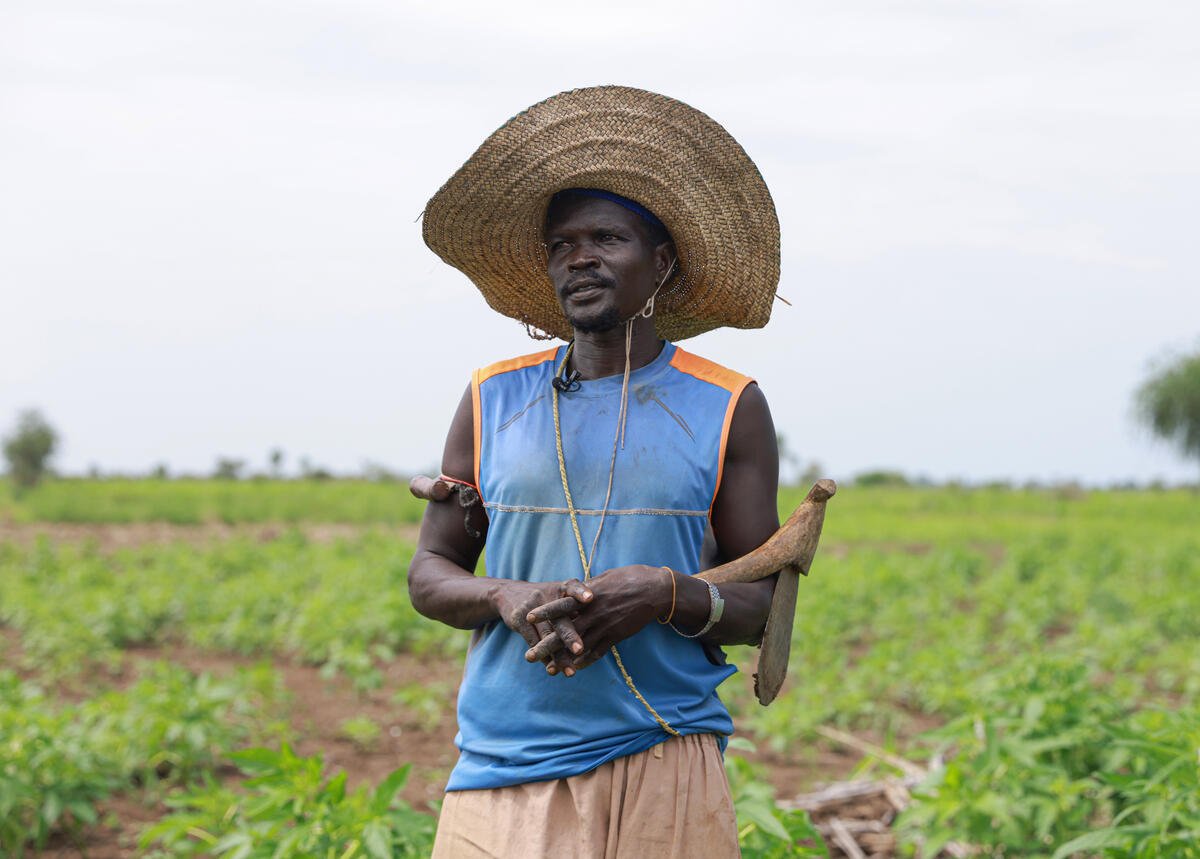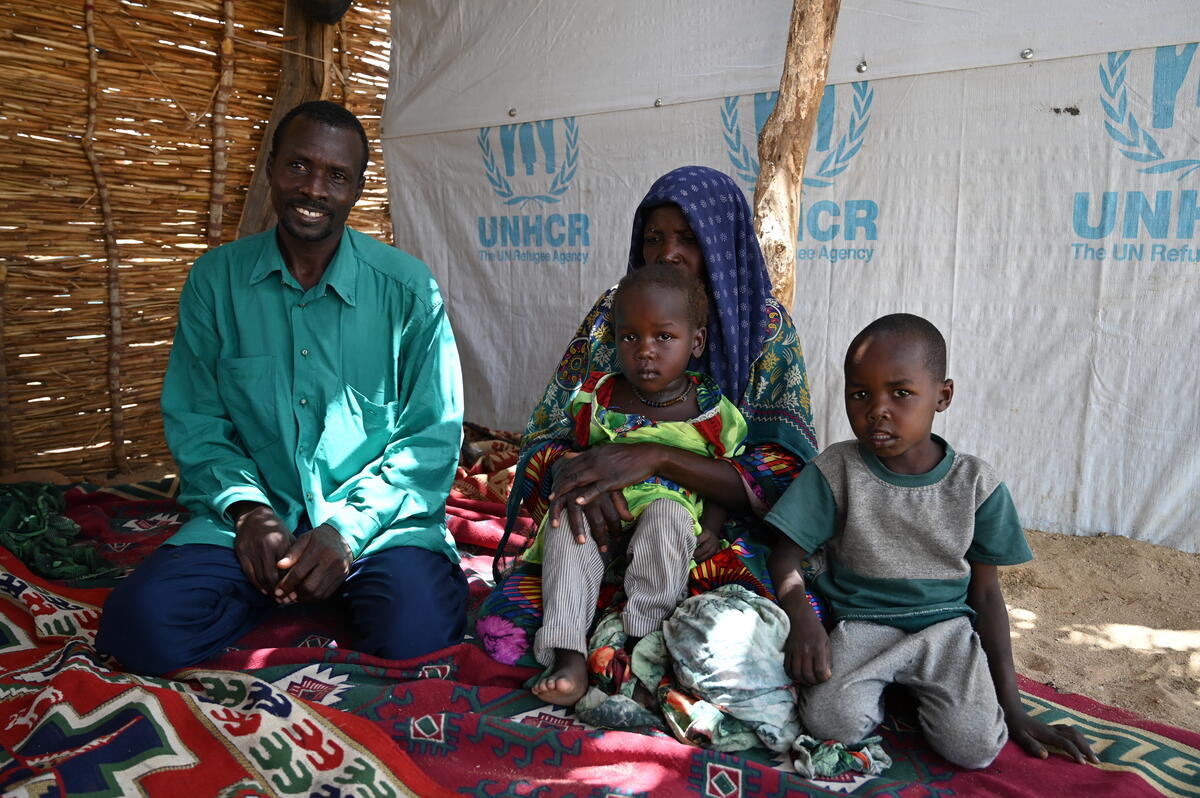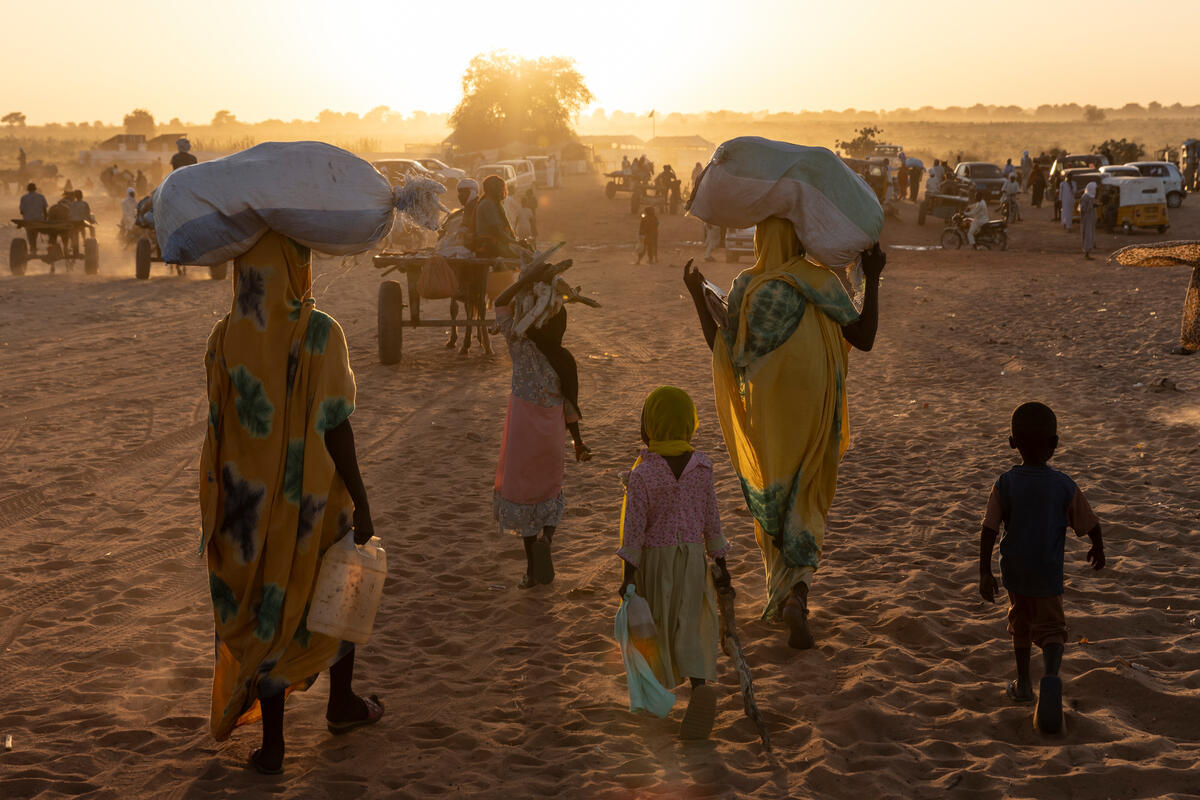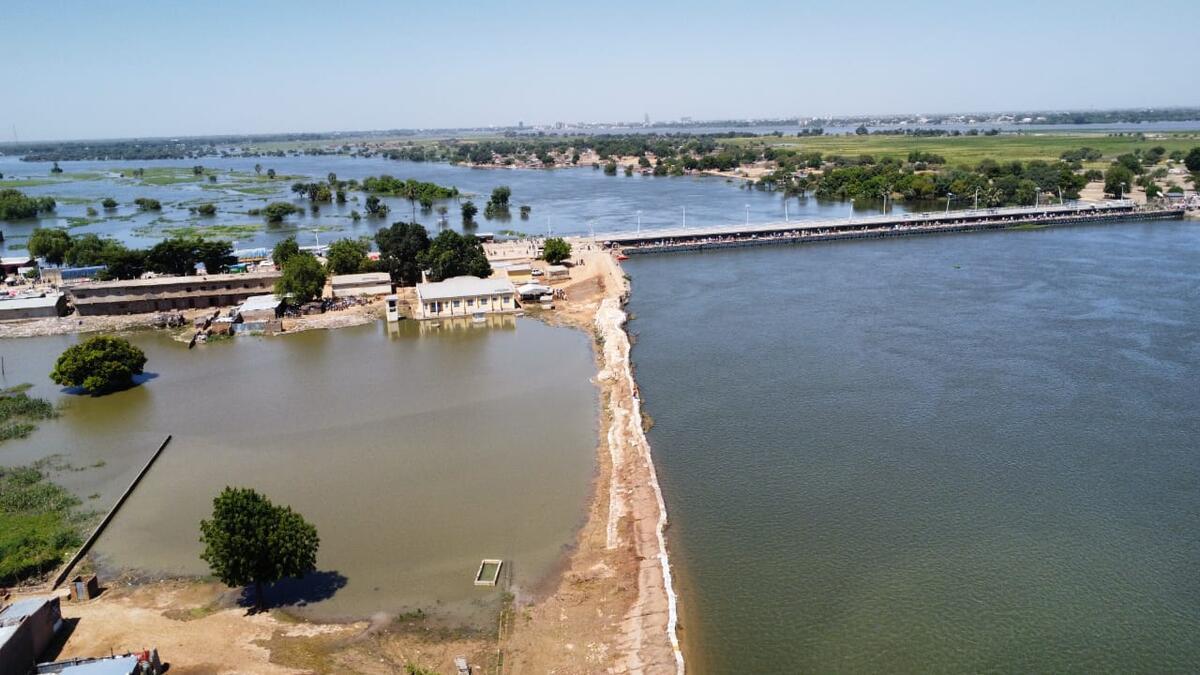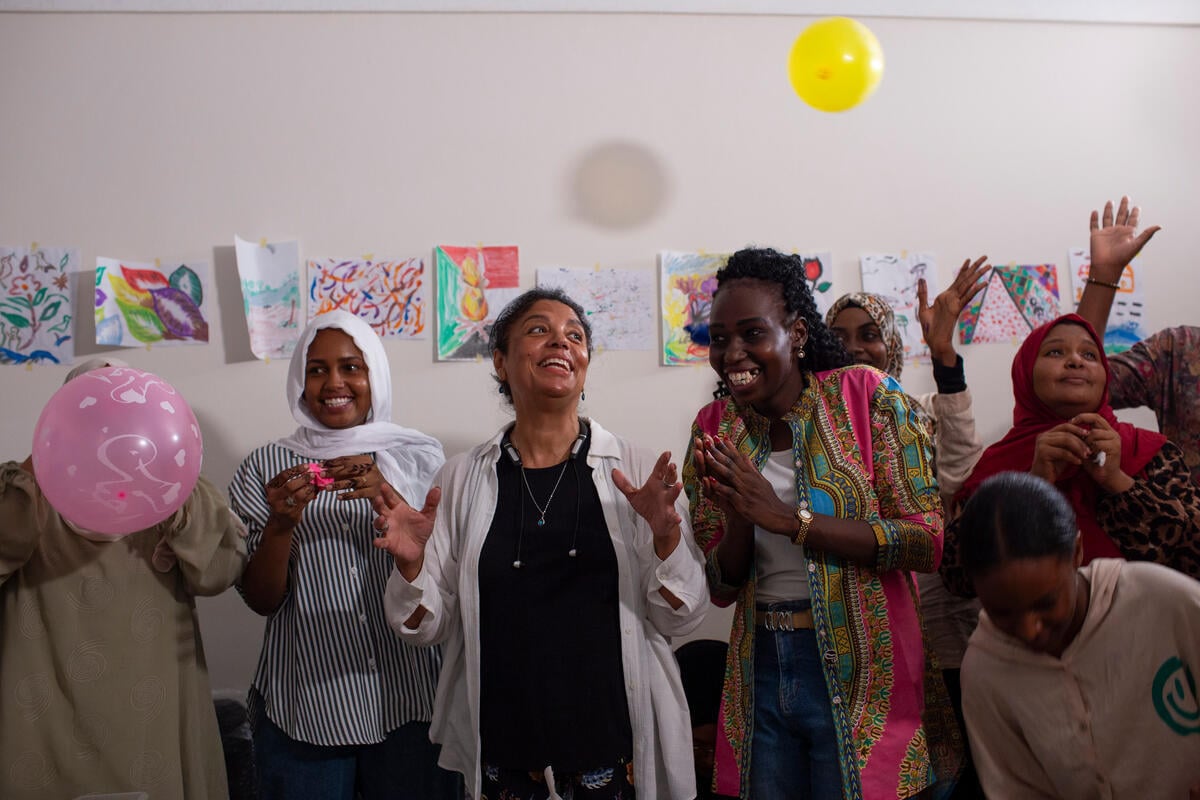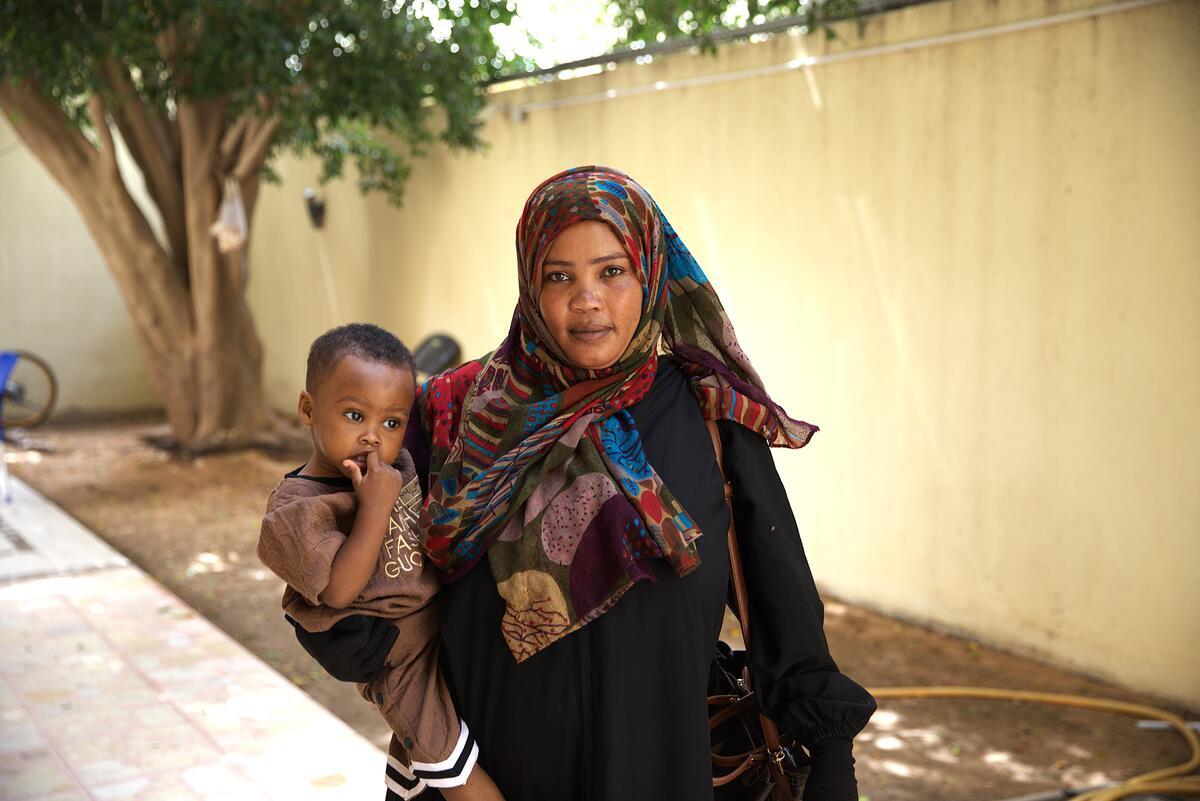Chad: Refugee site to move further from Sudan border
Chad: Refugee site to move further from Sudan border
Lack of water, proximity to the Sudan border and a deteriorating security situation is forcing UNHCR to relocate more than 16,000 Sudanese refugees from Am Nabak site in eastern Chad to a refugee camp further away from the border.
The first relocation of some 3,000 Sudanese refugees to Mile camp is scheduled for later this month, with the remaining 13,000 refugees expected to move later to a new site yet to be established. Am Nabak is only 27 km from the Chad/Sudan border. To ensure the security and protection of the refugees, UNHCR generally recommends camps or sites are at a reasonable distance from international borders as well as other potentially sensitive areas. We would like to be sure that the humanitarian character of the refugee camps is respected.
Am Nabak site was spontaneously established in June 2004 when thousands of Sudanese fleeing the violence in Darfur crossed the border seeking safety. The site's proximity to the border and the lack of water have been ongoing, serious concerns. Drinking water has to be trucked into the site, which is an expensive operation. Also, security on the roads leading to Am Nabak has markedly deteriorated with several recent hijackings of humanitarian aid vehicles, making it more difficult for UNHCR and its partners to deliver assistance to the refugees.
We are running an awareness campaign in Am Nabak so the refugees have a clear understanding of the reasons behind the move. They are well established at the site with their mud huts, schools and market and some may be reluctant to relocate. The total refugee population of Am Nabak is 16,512.
We are well down the track on our negotiations with the Chadian authorities on the relocation of the initial group of 3,000 refugees to Mile camp which already has a population of 13,419 but can easily cope with a further 3,000 refugees. The rest of the Am Nabak population will need to be moved to a site yet to be identified near Iriba, 60 km from the Sudan/Chad border.
Water is absolutely critical to any new site in the hostile desert region of eastern Chad, and we have already started to look for suitable water sources around Iriba. Providing the recommended 15 litres of drinking water to each of the more 204,000 refugees living in the 12 camps in eastern Chad remains one of the most significant challenges to UNHCR and our partners.
In a separate development on Thursday, UNHCR and the Chadian Government signed an agreement to increase the security presence in and around all 12 camps in eastern Chad with the aim of improving security for refugees, local populations, humanitarian personnel and humanitarian goods. The new arrangements include a wider security perimeter around camps (5 km), in addition to the already-existing security presence within refugee camps with the number of gendarmes increasing from 180 to 235.
Chadian police officers deployed under this agreement will undergo training on management of humanitarian crises, as well as international law and humanitarian assistance.

